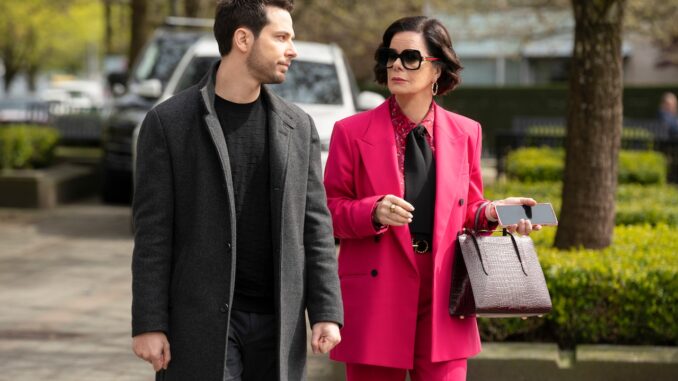
The Unfinished Case: So Help Me Todd, a Show Cut Short, and the Passionate Fans Left Behind
The television graveyard is a vast and unforgiving landscape, littered with the bones of shows that flickered brightly and then faded too soon. This Thursday, another name will be etched on its headstone: So Help Me Todd. The legal dramedy, centered around the dysfunctional yet loving relationship between meticulous lawyer Margaret Wright and her eccentric, black sheep son, Todd, is airing its series finale, a denouement forced upon it by network cancellation. But unlike many shows that quietly slip away, So Help Me Todd is going down fighting, its small but fiercely dedicated fanbase refusing to let its memory simply fade into the static.
The reasons for the show's cancellation are complex, a cocktail of ratings, network priorities, and perhaps a little bit of bad luck. However, the online outpouring of grief and fervent calls to save the show reveal a deeper story – a story about the power of connection, the appreciation for flawed characters, and the enduring appeal of a show that dared to be both funny and heartfelt.
The magic of So Help Me Todd lay in its unconventional premise. Margaret, a successful and impeccably organized lawyer, reluctantly hires her recently fired, directionless son, Todd, as her firm's in-house investigator. Todd, a man whose talents lie in skirting the law rather than upholding it, brought chaos and unconventional methods into Margaret's carefully constructed world. This friction, the clash of their personalities and approaches, was the comedic heart of the show. Yet, beyond the witty banter and often ridiculous scenarios, was a bedrock of genuine affection and unwavering familial support.
The show tapped into a universal longing for connection, especially within families. The Wrights, despite their flaws and frequent disagreements, ultimately had each other's backs. Margaret, initially exasperated by Todd’s antics, gradually learned to appreciate his unique perspective and inherent goodness. Todd, in turn, started to find purpose and a sense of belonging within his mother’s orbit. This evolving dynamic, portrayed with nuance and humor by Marcia Gay Harden and Skylar Astin, resonated deeply with viewers who recognized their own family dynamics, albeit often amplified for comedic effect.
The characters were also refreshingly imperfect. They weren't paragons of virtue; they made mistakes, had weaknesses, and grappled with their own internal demons. Margaret, despite her outward appearance of control, was often driven by insecurity and a need for validation. Todd, despite his carefree attitude, struggled with feelings of inadequacy and a desire to prove himself. These imperfections made them relatable, allowing viewers to see themselves in their struggles and triumphs.
The passionate fanbase of So Help Me Todd is a testament to the show's ability to forge genuine connections with its audience. Armed with hashtags, petitions, and fervent social media campaigns, they have relentlessly lobbied for the show’s renewal. They understand the show's intrinsic value, its ability to provide lighthearted entertainment while exploring complex themes of family, identity, and redemption. They see the potential for further stories, for deeper exploration of the characters' lives and relationships.
Their efforts, while valiant, may ultimately prove unsuccessful. The television landscape is notoriously difficult to navigate, and even the most dedicated fanbase can sometimes be powerless against the forces of corporate decision-making. However, the fight itself is significant. It highlights the power of fandom, the strength of community, and the importance of giving voice to the shows that resonate with us on a personal level.
This Thursday, as the credits roll on the So Help Me Todd series finale, it will be a bittersweet moment for its devoted viewers. There will be sadness at the loss of a beloved show, but also a sense of pride in the fight they waged to save it. The unfinished case of So Help Me Todd might be closed, but the legacy of its characters, its themes, and its passionate fanbase will undoubtedly endure, a testament to the enduring power of storytelling and the connection it can forge. In the television graveyard, the show may be gone, but the memory of its vibrant life will live on, fueled by the unwavering dedication of those who refused to let it simply fade away.
